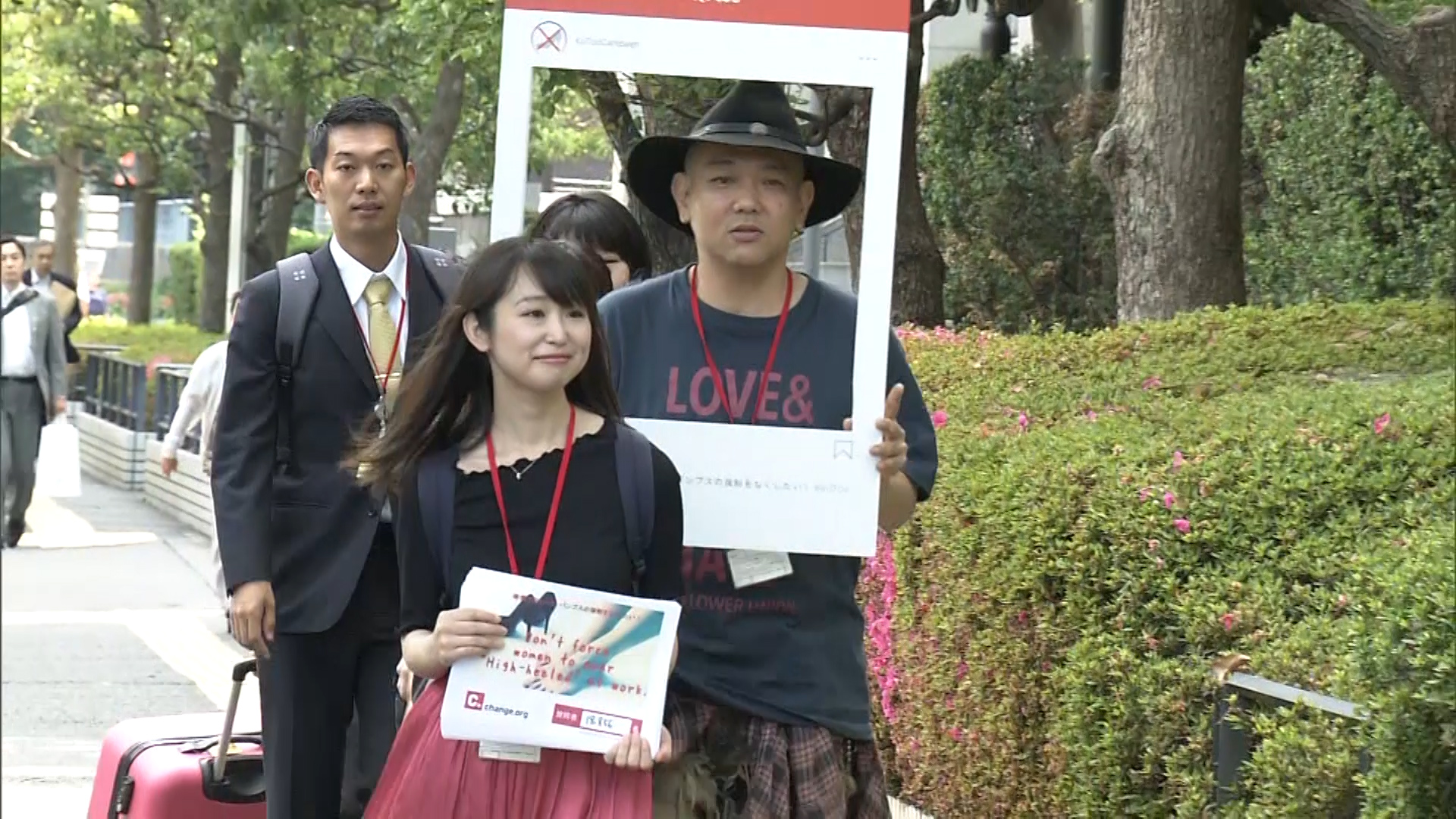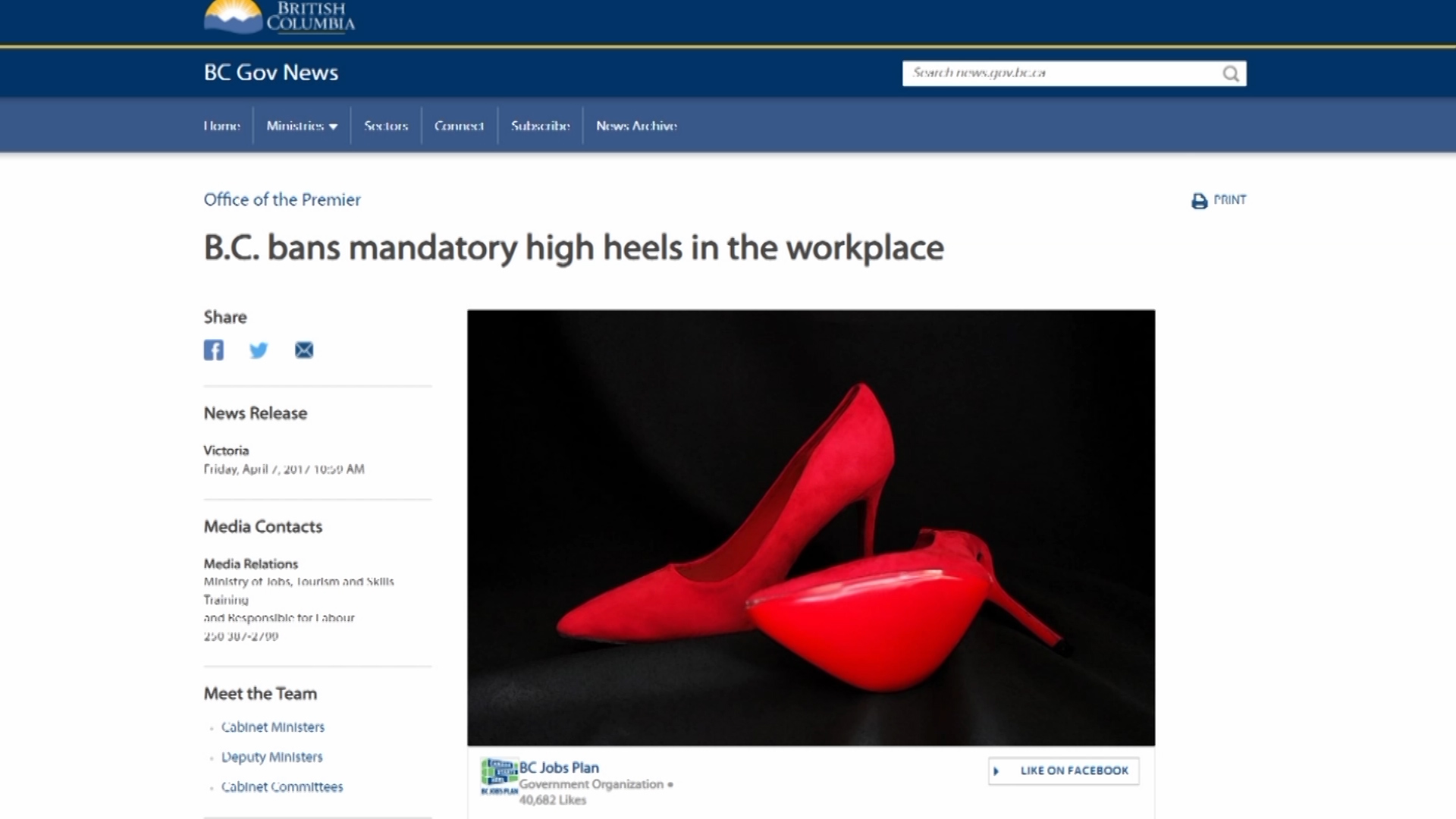Women going to and from work in heels is a familiar sight in Tokyo's business districts. The shoes are considered part of proper office attire and many feel they have to wear them, even if they don't want to.
"My feet get sore, I kick off my heels as soon as I get home," said one woman we spoke to. "It hurts every day."
"Sometimes I get blisters," said another. "I try putting on bandages or extra socks."
But some are in favor of wearing the shoes.
"I feel like I'm ready for work when I'm in heels," said one woman. "They are painful, but I like wearing them."
Earlier this year, an actress took to social media to question the validity of high heel culture. Her comments sparked what's being called the "KuToo" movement, a play on the Japanese words for "shoe" and "pain", and styled after #MeToo.
There has been a strong response and Yumi Ishikawa is now leading the charge for women to be given a choice. She collected 19,000 signatures for a petition saying that forcing women to wear heels is a form of sexual harassment, and delivered it to the ministry in charge of working conditions.
"By international standards, being forced to wear heels is gender discrimination," Ishikawa says.

The issue of women's workplace footwear has been getting worldwide attention in recent years. Julia Roberts walked barefoot down the red carpet at the Cannes Film Festival, a response to women reportedly being turned away from the event for wearing flats.
A Canadian province has banned companies from forcing women employees to wear heels at work, saying the shoes create a risk of injury. The Philippines has also adopted a similar measure.

Japan's health and labor minister has suggested that putting undue pressure on women to wear high heels could amount to power harassment. The minister added that while each workplace has its own environment, requests for women to wear heels should only be made when necessary and if they follow social norms.
But the culture is deep-rooted in Japan. Some women believe the shoes they wear could be the difference between getting a job or not.
"I don't have the courage to wear sneakers at a job interview," says a student who is looking for a job. "I don't want to fail because of that."
For one sales job, she was given rules on how high heels have to be, even for pregnant women.
"When someone breaks the rule and wears flats, colleagues immediately report her to the boss," she says. "The woman is lectured for wearing them."
Ishikawa says it's important for the government to hear voices like this one, despite any backlash.
"Even though many women signed the petition, they're called selfish and are told to just find comfortable high heels," she says. "This shows how hard it is for any individual to stand up to a boss."
While she and other Japanese women will keep fighting for change, they could still have a long way to walk in their shoes.

